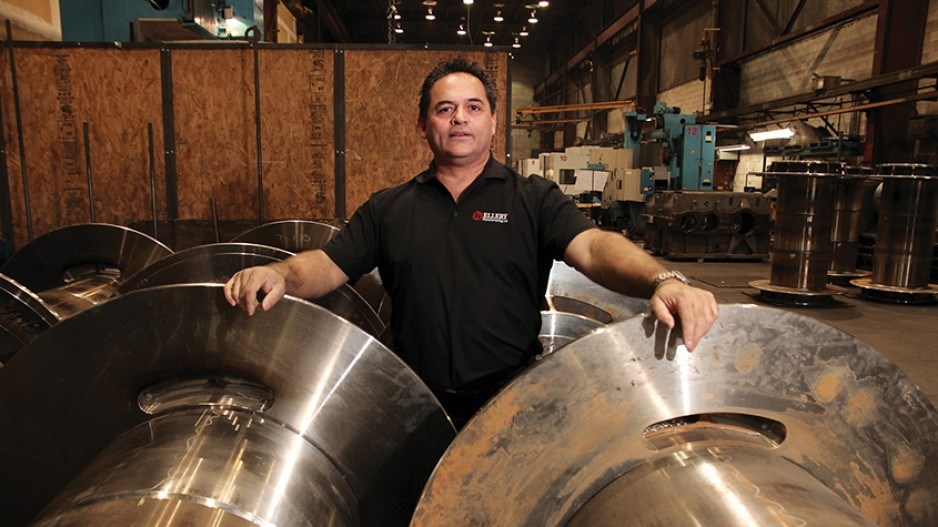Surrey businesses are starting to assess what their prospects could be under the Trans-Pacific Partnership (TPP), and the verdict thus far is “cautiously optimistic.”
Negotiations concluded recently on what the previous Conservative federal government has called “the largest, most ambitious free trade initiative in history,” but the TPP still needs to be approved by its 12 member countries, which include Canada, the U.S., Mexico, Japan and Australia.
Paul Ellery, vice-president of Surrey-based Ellery Manufacturing Ltd., said “cautiously optimistic” is a good way to describe his feelings toward the TPP.
Ellery Manufacturing builds parts and machines primarily for the Canadian resource extraction sector, but Ellery said the TPP should give it an opportunity to expand into the global market.
However, he added that increased international access also means increased competition for contracts.
“More competition is definitely one of our concerns. Will we be able to handle it? Yes. We’ve been competing with manufacturing countries such as China daily. We’re competitive to the point where we’re winning contracts, so we’re not really too concerned with competition per se. We’re more so looking at the advantages, which would be lowering the tariffs on incoming materials.”
China, which has the world’s second-largest economy, was the most notable country left out of the TPP negotiations.
The TPP will lift tariffs on most industrial goods, including 11.7% on Japanese metals and minerals, 40% on Vietnamese iron and steel and 50% on Malaysian chemical products.
Ellery said lifting tariffs will not only help his company reduce incoming costs of materials, but also provide a boon for Canada’s resource extraction sector, which his business services.
“A lot of our customers are in the forestry, mining and other sectors that are going to have an advantage with the TPP. We do a lot of work with these companies, whether it’s locally in the B.C. area or across Canada. And the more they export, the bigger advantage for us being one of their suppliers.”
Tony Malyk, a business coach who works with Surrey manufacturing companies, said the low Canadian dollar means the time might be right for exporters like Ellery to look at international expansion.
He said Surrey’s manufacturing sector in particular could be well positioned given its proximity to the U.S. border and the Fraser Surrey Docks.
“My only caution to manufacturers who plan to play on the world stage is to understand the markets you are selling to and have strong business systems and management in place,” Malyk said. “Businesses that grow quickly on a weak foundation can get themselves into a lot of trouble.”
During last week’s roundtable discussion at the Surrey Board of Trade, Lynne Platt, the U.S. consul general for B.C. and the Yukon, fielded several questions concerning the TPP.
She said logistical issues concerning overlap with the North American Free Trade Agreement (NAFTA) between the U.S., Canada and Mexico are still being worked out; however, Platt said she’s optimistic the TPP will benefit Canada’s economy in various ways.
She added that since NAFTA was signed in 1994, an entirely new workforce has emerged in the digital and information technology sector, which means the TPP is partially a “renegotiation of NAFTA,” given that many jobs were not outlined or included in the agreement because they didn’t exist in the early 1990s.
“That is something we’re all holding our breath about because we have run into this issue,” she said. “There are certain categories of jobs that people are taking south of the border that are not recognized under NAFTA. So we’ve had to harmonize and we’ve seen the need to harmonize some of that.”
Platt added that the TPP “is a trade agreement for the 21st century.”




